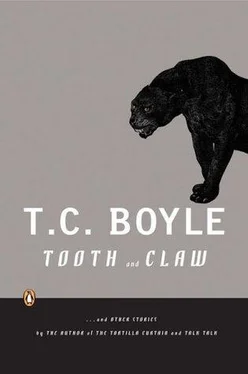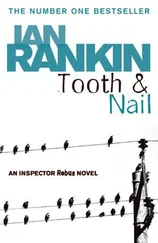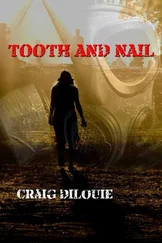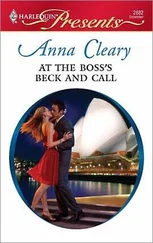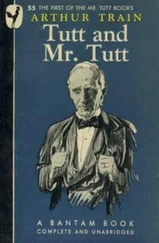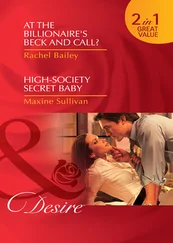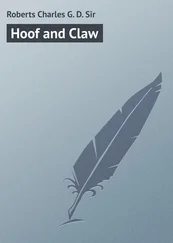She must not have said two words to Mr. Wheeler the rest of the way, but when they disembarked from the ferry he suggested they stop at the ordinary there to bait the horses and take this opportunity of refreshment. It was two in the afternoon. Sarah had had nothing since breakfast, and that she couldn’t keep down for worry over falling sick on the road, and so she agreed and they found themselves at a table with one respectable diner and three or four local idlers. The landlady — in a dirty apron, hair hanging loose and scratching at her scalp with both hands as if to dislodge some foreign thing clinging there — told them she’d broil some mutton if they’d like, but as good as that sounded, Sarah couldn’t muster much enthusiasm. She kept thinking of the landlady’s hands in her hair, and when the dish did come — the mutton pickled, with cabbage and a bit of turnip in a sauce that was so ancient it might have been scraped together from the moss grown on the skulls of the Christian martyrs — she found she had no appetite. Nor did Mr. Wheeler, who tried gamely to lift the spoon a second time to his lips, but wound up pushing the dish to the corner of the table while Sarah paid sixpence apiece for their dinners, or rather the smell of dinner.
They pressed on after that for Killingworth and arrived by seven at night. It was Friday now, the end of her fifth day on the road. She didn’t care about the bed or the food — though the former was soft and the latter savory, roasted venison, in fact — but only the road ahead and the sanctuary of Thomas Trowbridge’s house in New Haven. If she could have flown, if she could have mounted on the back of some great eagle or griffin, she would have done it without a second thought. New Haven , she told herself as she drifted off to sleep despite the noise and furor of the inn and the topers who seemed to have followed her all the way from Dedham Tavern, New Haven tomorrow .
KILLINGWORTH TO NEW HAVEN
THEY SET OUT early after a satisfactory breakfast, and though there were the Hammonasett, the East and West Rivers to cross and a dozen lesser waters, the fords were shallow and she barely hesitated. It was overcast and cool, the breeze running in off the sea to loosen her hair and beat it about her bonnet, Mr. Wheeler giving her a second day’s course in literature, the way relatively easy. And what did she see in that country on the far side of the Connecticut River? Habitations few and far between, a clutch of small boats at sea, two Indians walking along the roadway in their tatters with scallop shells stuck in their ears and dragging the carcass of some dead half-skinned animal in the dirt behind them. She saw shorebirds, a spouting whale out to sea, a saltwater farm on a promontory swallowed up in mist, and, as they got closer to their destination, boys and dogs and rude houses and yards chopped out of the surrounding forest, stubble fields and pumpkins still fat on the vine and scattered like big glowing cannonballs across the landscape. And then they were arrived and she was so relieved to see her cousin Thomas Trowbridge standing there outside his considerable stone house with his wife, Hannah, and a sleek black dog that she nearly forgot to introduce Mr. Wheeler properly, but they were all in the parlor by then and tea was brewing and something in the pot so ambrosial she could have fainted for the very richness of the smell.
AT NEW HAVEN
SHE STAYED two months, or one day short of it, having arrived on Saturday, the seventh of October, and leaving for New York on the sixth of December in the company of Mr. Trowbridge. In the interim, she vanquished her cold, wrote in her journal and prosecuted her business, at the same time taking advantage of this period of quiet to learn something of the people and customs of the Connecticut Colony, which to her mind at least, seemed inferior in most respects to the Massachusetts. The leaves brightened and fell, the weather grew bitter. She spun wool. Sat by the fire and chatted with Mrs. Trowbridge while the servants made a show of being busy and the slaves skulked in the kitchen to escape the cold of the fields. There were savages here aplenty, more even than at home, and they were a particularly poor and poorly attired lot, living on their own lands but suffering from a lack of Christian charity on the part of the citizenry. And the people themselves could have benefited from even the most rudimentary education — there wasn’t a man or woman walking the streets who was capable of engaging in a conversation that stretched beyond the limits of a sow’s indigestion or the salting of pilchards for the barrel.
One afternoon she happened to be at a merchant’s house, looking to acquire a few articles to give the Trowbridges in thanks for their hospitality, when in walked a rangy tall bumpkin dressed in skins and Indian shoes and with his cheeks distended by a black plug of tobacco. He stood in the middle of the room, barely glancing at the articles on display, spitting continuously into the dirt of the floor and then covering it over again with the sole of his shoe till he’d made his own personal wallow. The merchant looked inquiringly at him, but he wasn’t able to raise his eyes from the floor. Finally, after what must have been five full minutes of silence, he blurted out, “Have you any ribbands and hatbands to sell, I pray?” The merchant avowed he did and then the bumpkin wanted to know the price and the ribbons were produced; at that very instant, in came his inamorata, dropping curtsies and telling him how pretty the ribbon was and what a gentleman he was to buy it for her and did they have any hood silk and thread silk to sew it with? Well, the merchant did, and they bartered over that for half the hour, the bumpkin all the while spitting and spitting again and his wife — if she was his wife — simpering at his arm.
That night, at supper, she remarked to Mrs. Trowbridge that some of her neighbors seemed to lack breeding and Mrs. Trowbridge threw her eyes to the ceiling and said she didn’t have to tell her .
NEW HAVEN TO FAIRFIELD
THE SADDLE AGAIN. If she’d begun to harden herself to it on the long road from Boston to New Haven, now her layover with the Trowbridges had softened her and the pains that had lain dormant these two months began to reassert themselves. And it was bitter out of doors, a taut curtain of iron-gray cloud pinning them to the earth even as the wind stabbed at her bones and jerked loose every bit of chaff and ordure in the road and flung it in her face. The breath of the horse was palpable. Her fingers and toes lost all feeling and never regained them, not for two days running.
There was a brief contretemps at the Stratford Ferry — water, more water — and she froze upright with fear and at first wouldn’t budge from the horse, Thomas Trowbridge’s wide lunar face floating somewhere beneath her as he pleaded and reasoned and tried repeatedly to take hold of her hand, but in the end she mastered herself and the expedition went forward. The water beat at the flat bottom of the boat and she buried her face in her hands to keep herself from screaming, and then she thought she was screaming but it was only the gulls, white ghosts crying in the gloom. After that, she was only too glad to dismount at the ordinary two miles up the road and sit by the fire while the horses were baited and the hostess served up a hot punch and a pumpkin / Indian bread that proved, unfortunately, to be inedible.
By seven at night they came to Fairfield, and lodged there.
FAIRFIELD TO RYE
THEY SET OUT early, arriving just after noon at Norowalk, where the food, for once, was presentable and fresh, though the fried venison the landlady served up could have used more pepper in the seasoning and the tea was as weak as dishwater. The road from there to Rye was eight hours and more, a light snow swirling round them and the last four hours of the journey prosecuted in utter darkness, with only the faint tracks of a previous traveler to show them the way through the pale gauze of the night. And here she had a new sensation — her feet ached, aside from having gone numb with the cold, that is. For there was a prodigious high hill along the road, a mile or more in length, and they had to go afoot here, leading their horses behind them. Her legs took on all of her weight. They sank beneath her. She couldn’t lift them. Couldn’t breathe. And there was Thomas Trowbridge plodding ahead of her like a spirit risen in his winding sheet and his horse white too and the snow still falling as if it had been coming down since the beginning of creation and everything else — the sun, the fields, high summer and green crops — had been an illusion. “Is it much farther yet?” she asked, gasping for breath, and she must have asked a thousand times. “Na much,” came the reply, blown back in the wind.
Читать дальше
